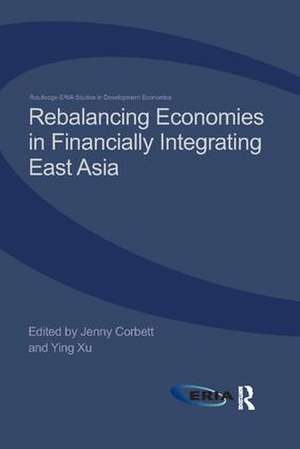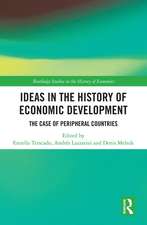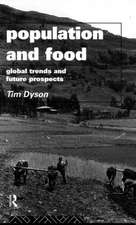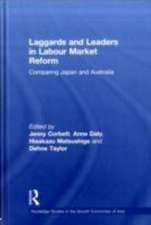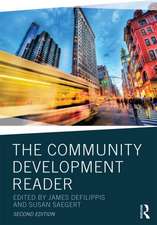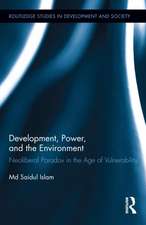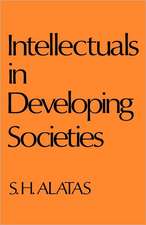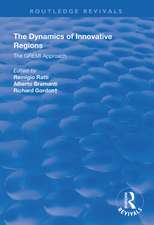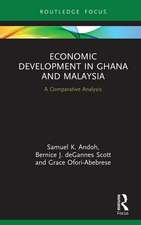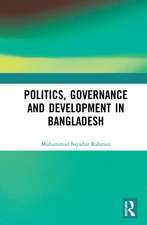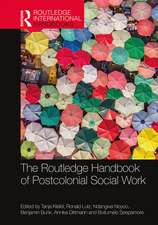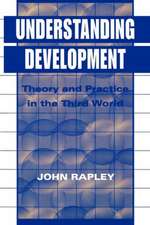Rebalancing Economies in Financially Integrating East Asia: Routledge-ERIA Studies in Development Economics
Editat de Jenny Corbett, Ying Xuen Limba Engleză Paperback – 15 apr 2017
The book offers new dimensions to understand ‘rebalancing’ and provides alternative and arguably more fundamental solutions to address imbalances. Rather than focusing on exchange rate misalignment, this book begins from the premise that the imbalances are a macroeconomic problem that reflects a mismatch between savings and investment in the surplus countries. Then, it examines exchange rate policies adopted by countries in the region and finds that part of the explanation for their currency strategy lies in their perceived need to build foreign exchange reserves to provide a buffer in case of instabilities. The book examines whether there are other possibilities for countries to insure against economic volatility by more actively and openly engaging with international capital markets. The studies show that closer financial integration, involving more open financial markets, with well-chosen partners, would be welfare-improving and should reduce the need for the counter-productive, self-insurance policies that result in foreign exchange accumulation.
| Toate formatele și edițiile | Preț | Express |
|---|---|---|
| Paperback (1) | 389.38 lei 43-57 zile | |
| Taylor & Francis – 15 apr 2017 | 389.38 lei 43-57 zile | |
| Hardback (1) | 1220.46 lei 43-57 zile | |
| Taylor & Francis – 20 noi 2014 | 1220.46 lei 43-57 zile |
Din seria Routledge-ERIA Studies in Development Economics
- 26%
 Preț: 850.91 lei
Preț: 850.91 lei -
 Preț: 396.29 lei
Preț: 396.29 lei -
 Preț: 262.69 lei
Preț: 262.69 lei -
 Preț: 416.22 lei
Preț: 416.22 lei - 25%
 Preț: 570.93 lei
Preț: 570.93 lei - 18%
 Preț: 260.45 lei
Preț: 260.45 lei - 18%
 Preț: 1004.20 lei
Preț: 1004.20 lei -
 Preț: 385.80 lei
Preț: 385.80 lei - 17%
 Preț: 278.03 lei
Preț: 278.03 lei - 12%
 Preț: 298.41 lei
Preț: 298.41 lei -
 Preț: 387.53 lei
Preț: 387.53 lei -
 Preț: 387.49 lei
Preț: 387.49 lei -
 Preț: 394.19 lei
Preț: 394.19 lei -
 Preț: 396.73 lei
Preț: 396.73 lei -
 Preț: 389.66 lei
Preț: 389.66 lei -
 Preț: 386.77 lei
Preț: 386.77 lei -
 Preț: 387.42 lei
Preț: 387.42 lei - 20%
 Preț: 259.98 lei
Preț: 259.98 lei - 18%
 Preț: 1003.61 lei
Preț: 1003.61 lei - 18%
 Preț: 1004.41 lei
Preț: 1004.41 lei - 20%
 Preț: 263.36 lei
Preț: 263.36 lei - 30%
 Preț: 824.29 lei
Preț: 824.29 lei
Preț: 389.38 lei
Nou
Puncte Express: 584
Preț estimativ în valută:
74.51€ • 77.99$ • 62.01£
74.51€ • 77.99$ • 62.01£
Carte tipărită la comandă
Livrare economică 31 martie-14 aprilie
Preluare comenzi: 021 569.72.76
Specificații
ISBN-13: 9781138066786
ISBN-10: 1138066788
Pagini: 288
Ilustrații: 202
Dimensiuni: 156 x 234 x 15 mm
Greutate: 0.45 kg
Ediția:1
Editura: Taylor & Francis
Colecția Routledge
Seria Routledge-ERIA Studies in Development Economics
Locul publicării:Oxford, United Kingdom
ISBN-10: 1138066788
Pagini: 288
Ilustrații: 202
Dimensiuni: 156 x 234 x 15 mm
Greutate: 0.45 kg
Ediția:1
Editura: Taylor & Francis
Colecția Routledge
Seria Routledge-ERIA Studies in Development Economics
Locul publicării:Oxford, United Kingdom
Public țintă
Postgraduate and UndergraduateCuprins
1. Macroeconomic Rebalancing and Financial Integration in East Asia, Jenny Corbett and Ying Xu 2. Growth Rebalancing and Investment in Asia and the Pacific, Peter Warr 3. Corporate Savings, Investment and Financial Structure in East Asia: Micro evidence, Jenny Corbett and Garry Twite 4. Exchange Rates or Other Factors in Global Rebalancing, Shang-Jin Wei 5. Do Asian Countries Fear Appreciation Against Renminbi?, Victor Pontines and Reza Y. Siregar 6. What Drives Some Countries to Hoard Foreign Reserves?, Heng Dyna and Jenny Corbett, 7. Defining Openness and Economic Interconnection in East and Southeast Asia, Tony Cavoli 8. Choosing the Best Partners for Risk-minimizing Integration, Achmad Maulana, Wei Feng and Jenny Corbett 9. The Influences of International and Domestic Shocks in East Asia, Mardi Dungey and M. Tugrul Vehbi 10. International Bank Claims on East Asian Economies: Stabilizers or destabilisers?, Victor Pointes and Reza Y. Siregar 11. The Rise of Asian-Owned Foreign Banks and Credit Stability in Asia, Ying Xu
Descriere
This book elucidates the economic structures and policies that give rise to current account surpluses and imbalances and consider what policy adjustments could change them.
